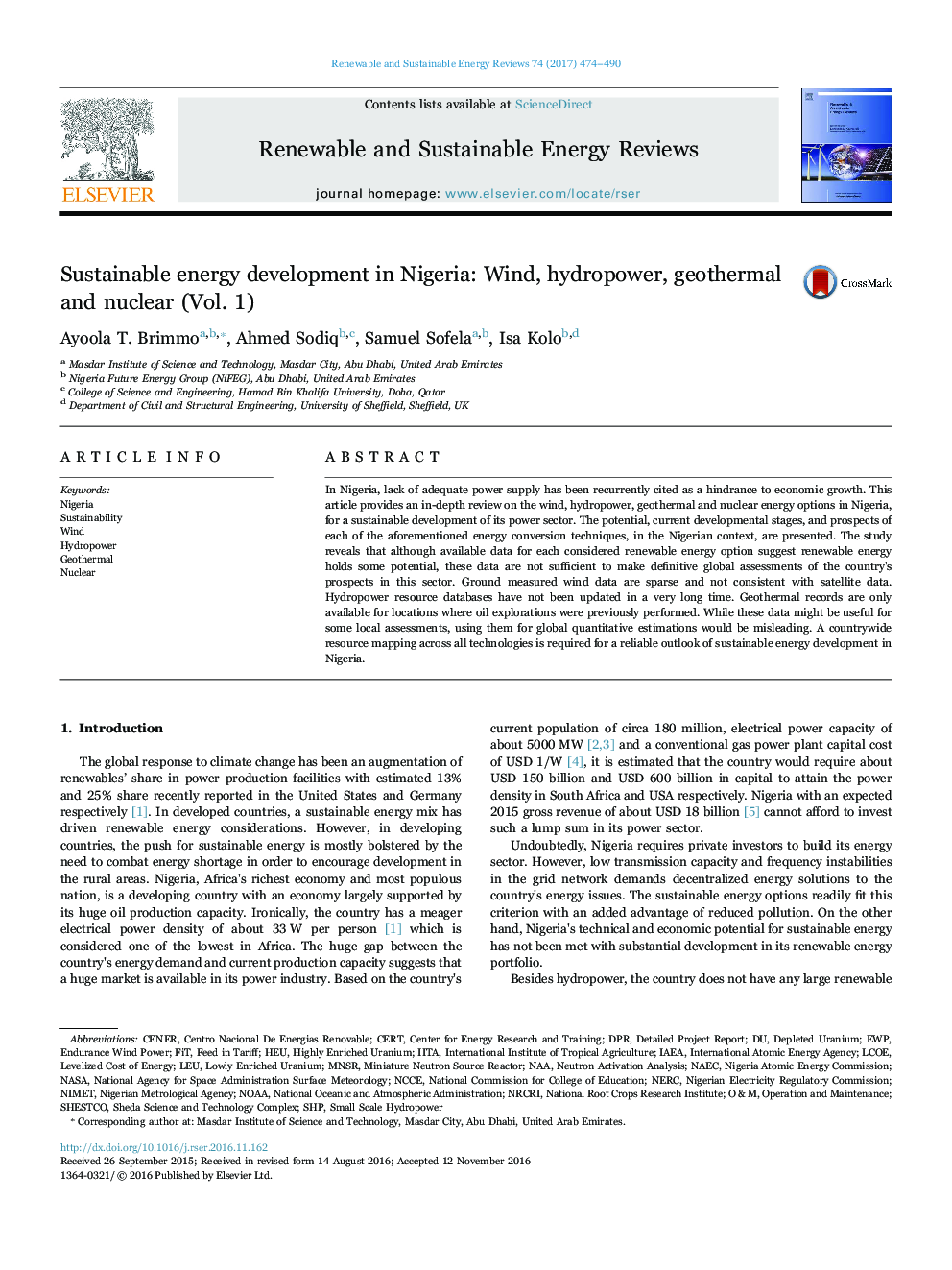| Article ID | Journal | Published Year | Pages | File Type |
|---|---|---|---|---|
| 5483136 | Renewable and Sustainable Energy Reviews | 2017 | 17 Pages |
Abstract
In Nigeria, lack of adequate power supply has been recurrently cited as a hindrance to economic growth. This article provides an in-depth review on the wind, hydropower, geothermal and nuclear energy options in Nigeria, for a sustainable development of its power sector. The potential, current developmental stages, and prospects of each of the aforementioned energy conversion techniques, in the Nigerian context, are presented. The study reveals that although available data for each considered renewable energy option suggest renewable energy holds some potential, these data are not sufficient to make definitive global assessments of the country's prospects in this sector. Ground measured wind data are sparse and not consistent with satellite data. Hydropower resource databases have not been updated in a very long time. Geothermal records are only available for locations where oil explorations were previously performed. While these data might be useful for some local assessments, using them for global quantitative estimations would be misleading. A countrywide resource mapping across all technologies is required for a reliable outlook of sustainable energy development in Nigeria.
Keywords
IITAHEULCOECERTDPRMiniature Neutron Source ReactorNaAMNSRSHPNERCEWPLEUNOAAO&Minternational atomic energy agencyIAEAHydropowerHighly enriched uraniumDepleted UraniumWindNeutron activation analysisFeed in tariffNational Oceanic and Atmospheric Administrationoperation and maintenanceFITNASANigeriaLevelized cost of energyNuclearSustainabilityGeothermal
Related Topics
Physical Sciences and Engineering
Energy
Renewable Energy, Sustainability and the Environment
Authors
Ayoola T. Brimmo, Ahmed Sodiq, Samuel Sofela, Isa Kolo,
